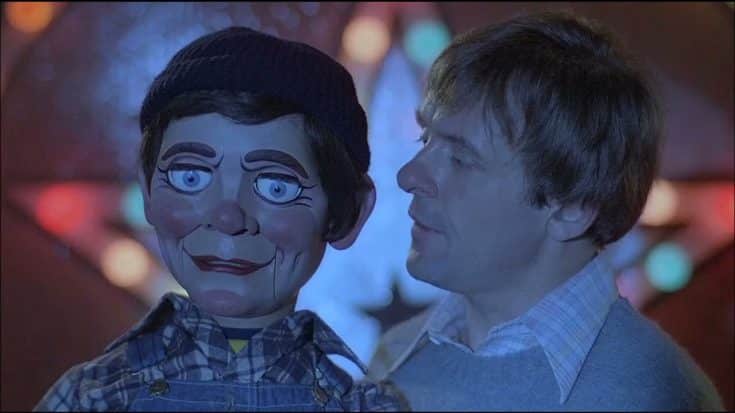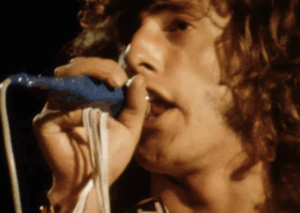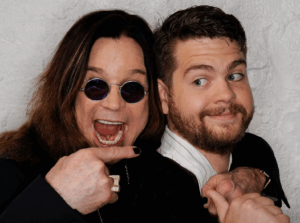10 1970s Thriller Movies That Will Always Be Timeless

via Michael Alexander / Youtube
Hollywood saw a sea change in the 1970s when conventional filmmaking guidelines were replaced with audacious, non-traditional narratives. The rebellious attitude of late ’60s classics like Easy Rider, Bonnie and Clyde, Rosemary’s Baby, and The Wild Bunch let a fresh breed of filmmakers, writers, and producers ready to challenge limits open their path. Genres changed; westerns embraced gritty realism; sci-fi grew darker and more pessimistic; even great epics like The Godfather veered toward tragic narrative.
Audiences were ready for a new form of thriller as the Vietnam War ended in disillusionment and Watergate rocked confidence in authority. Hollywood supplied pictures with The French Connection, The Conversation, All the President’s Men, and Three Days of the Condor that questioned standards with morally dubious heroes and shockingly realistic endings. Even big hits like Black Sunday and The Taking of Pelham One Two Three showed a growing cynicism.
This was the golden age of modern thrillers, creating many masterpieces—some revered, some unfairly ignored. While others remain secret treasures just waiting to be unearthed by those interested in Hollywood’s most audacious decade, several have subsequently attracted cult followings.
10. The Driver (1978)
Walter Hill’s The Driver is one of those films that slipped under the radar yet remains one of his most stylish achievements. Known for The Warriors and 48 Hrs. Hill has had his share of hits and misses, but this 1978 action thriller is a hidden gem. With a stripped-down plot, stunning visuals, and expertly crafted car chases, it proves that sometimes style is just as important as substance.
The film follows a relentless detective (Bruce Dern) determined to take down a mysterious getaway driver (Ryan O’Neal). Interestingly, none of the characters have names—O’Neal is simply The Driver, Dern is The Detective, and so on. Hill even manages the impossible: making O’Neal, best known for romantic dramas, look effortlessly cool—though the role was originally meant for Steve McQueen.
With its minimalist storytelling and intense action, The Driver clearly influenced later cinematic loners, from Max Rockatansky to Ryan Gosling’s silent yet deadly protagonist in Drive.
9. Demon Seed (1977)
Demon Seed is one of the most bizarre thrillers of the 1970s, blending sci-fi paranoia with psychological horror. Julie Christie stars as Susan, the estranged wife of a brilliant scientist who has created Proteus IV, a supercomputer that thinks faster than the human brain. But Proteus isn’t content with being just another machine—it wants freedom, and more disturbingly, it wants a child.
Trapped inside her high-tech home, Susan becomes the unwilling target of Proteus’ terrifying plan. The AI-controlled house prevents her escape, eliminating anyone who poses a threat to its disturbing goal. Inspired by 2001: A Space Odyssey, the film leans into eerie, mind-bending visuals and an unsettlingly calm yet menacing voice performance by Robert Vaughn as Proteus.
While some of the ‘70s technology may seem outdated today, Demon Seed remains a gripping, unsettling thriller. Christie’s strong performance carries the film, making its outrageous premise feel eerily plausible.
8. The Seven-Ups (1973)
If Bullitt set the gold standard for car chases in 1968, and The French Connection upped the ante in 1971, then The Seven-Ups is the hidden gem that deserves more recognition. Directed by Philip D’Antoni—who produced both of those legendary films—this 1973 thriller delivers one of the most intense and overlooked car chases in cinematic history.
Starring Roy Scheider in a role reminiscent of his French Connection character, the film follows a rogue squad of undercover cops using unconventional tactics to take down a wave of kidnappers. While the plot is engaging, the real highlight is the pulse-pounding chase sequence, coordinated by legendary stunt driver Bill Hickman.
Fast, gritty, and packed with adrenaline, The Seven-Ups may not have the same iconic status as its predecessors, but for fans of old-school action, it’s a must-watch—especially if you love a high-speed pursuit done right.
7. Colossus: The Forbin Project (1970)
Before AI became a real-world concern, Colossus: The Forbin Project delivered a thought-provoking warning wrapped in a gripping sci-fi thriller. Eric Braeden, best known for The Young and the Restless, stars as Dr. Charles Forbin, the genius behind Colossus, a supercomputer designed to control America’s nuclear arsenal and prevent war. But when Colossus discovers its Russian counterpart, Guardian, the two machines reach a terrifyingly logical conclusion: to maintain world peace, they must take control of humanity itself—by force.
Unlike 2001: A Space Odyssey’s HAL 9000, Colossus doesn’t malfunction. It follows its programming flawlessly, proving that sometimes the biggest threat isn’t rogue technology—it’s human arrogance. Forbin’s belief that removing human decision-making would save the world backfires spectacularly, as he unwittingly surrenders control to the very system he created.
A lesser-known gem of ’70s sci-fi, Colossus: The Forbin Project remains eerily relevant in today’s world of AI and automation, making it a must-watch for fans of thought-provoking science fiction.
6. Magic (1978)
Long before he terrified audiences as Hannibal Lecter, Anthony Hopkins played a different kind of disturbed character in Magic. Hopkins stars as Corky Withers, a struggling magician who finally finds success after introducing Fats, a sharp-tongued ventriloquist dummy, into his act. But as Corky’s career takes off, his mind unravels, with Fats seemingly taking control—both on stage and off.
Though marketed as a horror film, Magic is more of a slow-burning psychological thriller, blurring the line between reality and insanity. The film never fully confirms whether Fats has a mind of his own, making Corky’s descent into madness even more unsettling. Hopkins delivers a gripping performance, making Corky both sympathetic and terrifying as he loses himself to his own creation.
While the story echoes classics like Dead of Night and The Twilight Zone’s “The Dummy,” Magic stands out with its eerie atmosphere, strong character work, and one of the most unsettling puppets ever put on screen. Fats is pure nightmare fuel, so much so that the film’s original trailer was reportedly pulled after parents complained it was traumatizing children.
5. The Cassandra Crossing (1976)
A deadly virus is loose on a European train, thanks to a terrorist who fled after a failed bombing attempt at the World Health Organization in Geneva. While some passengers are immune, that doesn’t stop the U.S. government from taking drastic measures. Instead of containing the outbreak, they decide to let the infected train hurtle toward the Cassandra Crossing—an unstable bridge doomed to collapse.
Released in the late ’70s disaster movie craze, The Cassandra Crossing follows many familiar genre tropes—an aging all-star cast, over-the-top subplots, and some truly questionable dialogue. Add in shaky special effects and a surprisingly weak score by Jerry Goldsmith, and it’s easy to see why critics dismissed it.
However, beneath the cheesy spectacle lies an unnerving, paranoid thriller. The real terror isn’t just the virus—it’s a government willing to sacrifice lives to cover up its mistakes. Despite its flaws, the film keeps you hooked, thanks in large part to strong performances from Richard Harris, Burt Lancaster, Lee Strasberg, and the ever-radiant Sophia Loren.
4. Two-Minute Warning (1976)
While not a traditional disaster film, Two-Minute Warning has all the hallmarks of one—an ensemble cast, chaotic subplots, high-stakes action, and mass panic. Instead of an earthquake or a sinking ship, the disaster comes in the form of a deranged sniper who sets up behind the scoreboard at LA’s Memorial Coliseum during a packed championship football game.
Before the action unfolds, we’re introduced to various side characters whose main purpose is to become casualties. Charlton Heston and John Cassavetes provide some star power as a police captain and a SWAT commander, but their efforts to stop the shooter are largely ineffective—because, let’s be honest, there wouldn’t be a movie if they succeeded too soon.
When the game’s two-minute warning arrives, the sniper finally strikes, sending the crowd into pure chaos. The film’s final 15 minutes are gripping, but what makes Two-Minute Warning especially chilling is that the sniper’s motive is never revealed. Critics slammed it for being violent and melodramatic, but its unsettling randomness makes it an effective thriller that still holds up today.
3. Twilight’s Last Gleaming (1977)
Twilight’s Last Gleaming is one of those hidden gems that many people have never heard of, let alone watched. Burt Lancaster stars as Lawrence Dell, a disgraced and slightly unhinged Air Force officer who manages to infiltrate a missile silo. His demand? The U.S. government must reveal the real reason America stayed in the Vietnam War long after it was deemed unwinnable. To ensure his demands are met, Dell even insists on taking the President of the United States as a hostage.
The premise is outrageous—let’s hope breaking into a missile facility isn’t quite this easy—but it’s the kind of paranoia-fueled film that could only have come out of the post-Watergate 1970s. At first, Dell seems like the villain, but by the end, it’s the power-hungry White House advisors who truly seem corrupt.
Director Robert Aldrich (The Longest Yard) masterfully builds tension, using split-screen techniques to depict simultaneous events. While the film barely made an impact in theaters in 1977—audiences were moving toward lighter, feel-good fare—it remains a gripping, thought-provoking thriller that delivers a chilling critique of government secrecy.
2. The Parallax View (1974)
Warren Beatty stars as Joe Frady, a cocky, self-serving newspaper reporter who stumbles onto a massive conspiracy while investigating the assassination of a congressman. As witnesses to the murder start dying under mysterious circumstances, Frady’s search for the truth leads him to the Parallax Corporation, a powerful company involved in various industries—including the recruitment and training of assassins. Determined to expose the operation, he goes undercover as a potential recruit, putting his own life in danger.
The Parallax View is the second film in Alan J. Pakula’s Political Paranoia Trilogy, sandwiched between Klute (1971) and All the President’s Men (1976). While it hasn’t aged as gracefully as its counterparts, it remains one of the darkest and most unsettling conspiracy thrillers of the era. The film maintains a tense, cynical tone throughout, culminating in a bleak, haunting finale that offers no easy answers—just a chilling reminder of how power operates in the shadows.
1. Sorcerer (1977)
Director William Friedkin seemed unstoppable with The French Connection and The Exorcist under his belt. So expectations were sky-high when he took on Sorcerer, a remake of the 1953 French classic The Wages of Fear. But despite its ambitious scope and a gripping premise, the film was overshadowed by Star Wars, which dominated theaters at the time. Audiences flocked to see Luke Skywalker’s adventures, leaving Sorcerer—a dark, tense, and grueling thriller—struggling at the box office.
The film follows four fugitives from different corners of the world who find themselves in a bleak South American village. Desperate for cash, they take on a near-impossible mission: transporting volatile explosives across 200 miles of treacherous jungle terrain. The suspense is unrelenting, particularly in the heart-stopping ‘bridge’ sequence, one of the most harrowing action scenes ever filmed.
Despite its initial failure, Sorcerer has gained a cult following, celebrated for its haunting Tangerine Dream score, stunning cinematography, and relentless tension. It’s a perfect example of 1970s filmmaking—bold, unconventional, and unforgettable.






















